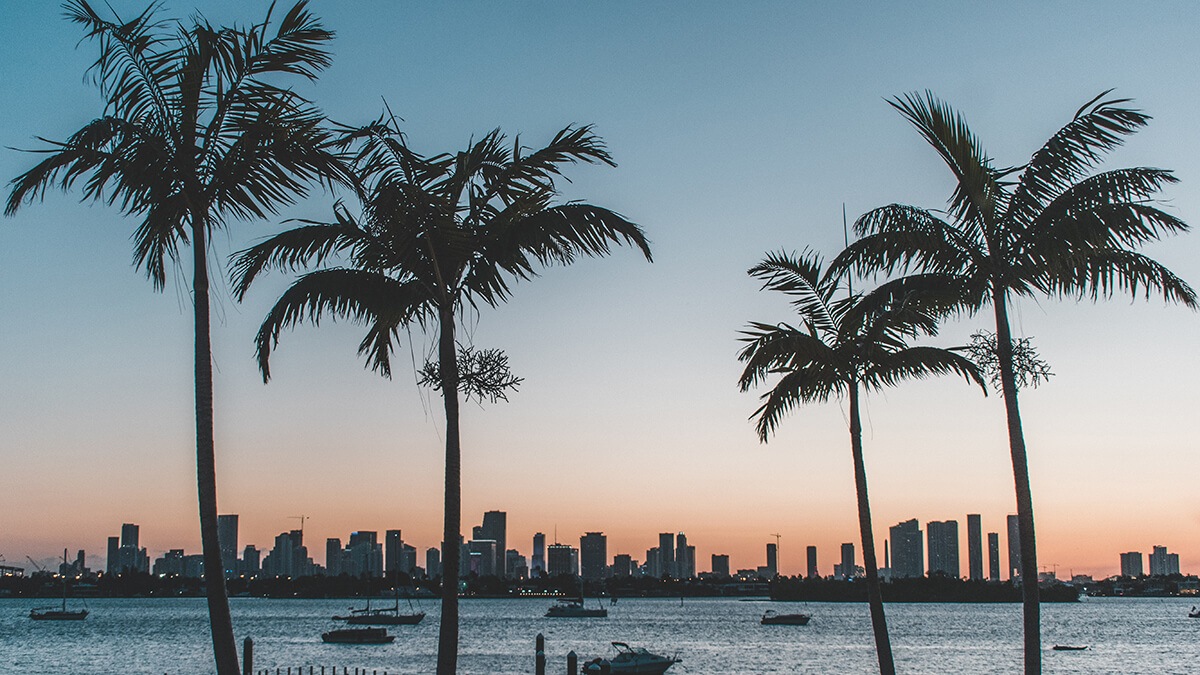Down Payments Florida
- How Much Is Down Payment for a House in Florida?
- Need Help With The Down Payment?
- What is a Conventional Mortgage Loan?
- Your Financial Situation Determines the Types and Amount of Loan You Can Get
- Future Mortgage Payments
- Debt-To-Income Ratio
- Closing Costs
- Requirements and Documents Needed for Conventional Mortgage in Florida
- Protect Your Financial Records
One of the first things a buyer should consider when looking for a new home is the
down payment. In Florida, a down payment ranges from 3% to 20% at the minimum
depending on the loan type and the potential buyers credit score.
This article will explain the down payment requirements for different types of loans,
requirements for mortgages, and how your finances may impact the loans you qualify
for.
If you’re looking for a simple option, iBuyer.com can provide you with a fast and fair
cash offer for your current property, so you can free up some funds for the down
payment on your future home.
Compare Cash Offers from Top Home Buyers. Delivered by Your Local iBuyer Certified Specialist.
One Expert, Multiple Offers, No Obligation.
How Much Is Down Payment for a House in Florida?
Down payments offset lenders’ risk because they commit the buyer. Suppose you make a down payment of $30,000 to buy a home. You now have a strong incentive not to default on your monthly mortgage payments because you don’t want to lose the $30,000 if the lender forecloses on your home.
The average down payment on a house in Florida varies with different loan types. The following are the main types of loans and the down payment you need to pay for each.
- Conventional Mortgage Loan. This is the most common loan type. Their minimum down payment requirement for traditional mortgages is 3–20%. However, lenders might require you to pay a larger down payment if you have too much debt or a bad credit score (lower than 620).
- USDA Loan. This is a government-backed loan designed for purchasing a home in a qualified suburban or rural area. USDA loans don’t come with a minimum down payment requirement.
- VA Loan. This is a government-backed loan that’s available to former or current members of the National Guard and the Armed Forces if you’re eligible. If you qualify for a VA loan, you can purchase the home with no money down.
- FHA Loan.This is a government-backed loan with a minimum down payment requirement that’s lower than that of conventional mortgages. If you can put down at least 3.5% at closing, you can get an FHA loan to purchase a house.
Need Help With The Down Payment?
If you need help with the down payment, you can use a down payment assistance program in Florida for low-income or first-time buyers. These programs are usually governmental grants or second mortgages with forgiven or deferred payments. Here are a few things you should know about Florida’s down payment assistance programs.
- The 3-Percent HFA Preferred Grant provides a non-repayable grant that covers 3% of the price of a home.
- The Florida Assist program provides an interest-free second mortgage of up to $7,500. This amount usually only falls due when you refinance or resell.
- The Hardest Hit Fund DPA provides residents of certain counties an interest-free five-year loan of up to $15,000. However, 20% of that loan is forgiven every year, meaning you don’t have to repay anything if you’re in it for the long haul.
- HUD offers various alternative programs.
- More details are available at the Florida Housing Finance Corporation’s website.
What is a Conventional Mortgage Loan?
Conventional mortgages are loans from lenders in the private sector, meaning the federal government doesn’t back them. These loans follow Fannie Mae and Freddie Mac guidelines and they’re the most common, accounting for about 60% of all applications for mortgages.
A conventional mortgage is referred to as a conforming loan if it sticks to the financing limits established by the Federal Housing Financing Authority (FHFA). In contrast, non-conforming loans (jumbo loans) exceed the FHFA’s limits for conventional mortgage loans.
Non-conforming loans can be a suitable option for you if you want to buy a larger home and are prepared to make a large upfront payment. However, keep in mind that the interest rates and down payments for non-conforming loans are usually higher than those of conforming loans.
You can use conventional loans to buy almost any type of property, including modular homes, warrantable condos, multifamily residences and manufactured homes. Furthermore, conventional loans don’t impose owner-occupancy requirements like government-backed loans, making them ideal for investment properties or second mortgages.
Your Financial Situation Determines the Types and Amount of Loan You Can Get
If you plan to buy a home using a mortgage loan, you must understand what options are best for you, given your financial situation. The financial factors that determine your options include:
- Your Credit Score. Your score must be 620 or above for you to qualify for most conventional loans. There are some low-credit options available. Still, if your credit is low, you need to start fixing it as soon as possible.
- Debt-to-Income Ratio. Most lenders require that your debt, including future mortgage payments, not exceed 36% of your income.
- Down Conventional loans require a down payment of at least 20%.
- Closing Costs. You’re typically required to pay 2–5% of the sale price as closing costs. This amounts to $8,170–$20,425, given the average sale price of a home in Florida is $415,600. Closing costs are typically out-of-pocket expenses, so make sure you have enough saved.
- Homeownership Costs. Homeowners in Florida spend about $3,599 in maintenance costs annually. These costs vary, though. Generally, you should set aside %1 of the value of the home for repairs and maintenance.
Future Mortgage Payments
One of the essential initial steps of buying a home is determining how much you can afford in mortgage payments. Lenders use the 28/36 rule to decide whether or not you qualify for financing:
- Your total housing costs, including future mortgage payments, should be 28% or less of your monthly income.
- Your monthly debt payments should be 36% or less of your monthly income.
So, working with the median income in Florida ($57,887), the potential mortgage payment for the average Floridian should be around $1,441 (28% of $5,148).
Debt-To-Income Ratio
Lenders need to be sure that you can afford to pay your monthly mortgage payments. They determine this by calculating your debt-to-income (DTI) ratio, inclusive of the mortgage payments.
The lower your DTI ratio, the more likely lenders are to approve your application for a mortgage. However, having a high credit score can improve your chances. Generally, you want to keep your DTI under 36%, even though some lenders have been known to give mortgages to borrowers with a DTI ratio of up to 43%.
You can calculate your DTI ratio by summing all your recurring monthly debt payments, including the estimated mortgage payments, and dividing the sum by your gross monthly income. Recurring monthly debt payments include:
- Estimated mortgage payment
- Auto loans
- Child support or alimony
- Student loans
- Personal loans
- Minimum credit card payments
Closing Costs
Meeting the legal requirements for closing a real estate transaction involves several services, all of which cost money. The seller is required to cover some of the closing costs. However, the buyer is typically required to pay for most of the out-of-pocket closing costs.
- Property taxes
- Title insurance policies and fees
- Inspections
- Loan application fees
- Homeowner’s insurance
- Appraisal fees
These costs are usually 2–5% of the loan amount.
Requirements and Documents Needed for Conventional Mortgage in Florida
Here are a few more things you need to be prepared to cover with your loan officer when your meet to discuss conventional loan options for buying a house in Florida.
- When you apply for a conventional loan, you need to provide the lender with documentation that details your financials, including your assets and income.
- Assets and Income. Lenders review the documents, such as investment account and bank statements, to determine whether you can afford the down payment and closing costs.
- Private Mortgage Insurance (PMI). If you pay a down payment of less than 20% for a conventional loan, you’re required to pay PMI, the cost of which is 0.5–1%of the loan amount, payable annually. PMI varies depending on your credit rating.
The documents required to qualify for a conventional mortgage include:
- Government-issued identification
- Credit report
- Two years’ worth of employment information and W-2s
- Two to three years’ worth of income tax returns
- Two to three months’ worth of bank and investment account statements
- 30 days’ worth of pay stubs
- A list of assets and liabilities
- Signed and dated IRS Form 4506-T
- Gift letter (if using gift funds)
- Bankruptcy/discharge papers for any documented bankruptcies
- Renting history
- For self-employed Borrowers: proof of income, a list of all business debts and a current profit and loss statement.
Protect Your Financial Records
If you own a home and plan to relocate to Florida, selling your current home for the right amount is one of the crucial steps to the relocation process. Find out how much your home is worth fast and for free by entering your address, and you’ll get an instant, accurate estimate.
Looking for cash offers on your home? You’ve come to the right place!
Reilly Dzurick is a seasoned real estate agent at Get Land Florida, bringing over six years of industry experience to the vibrant Vero Beach market. She is known for her deep understanding of local real estate trends and her dedication to helping clients find their dream properties. Reilly’s journey in real estate is complemented by her academic background in Public Relations, Advertising, and Applied Communication from the University of North Florida.




